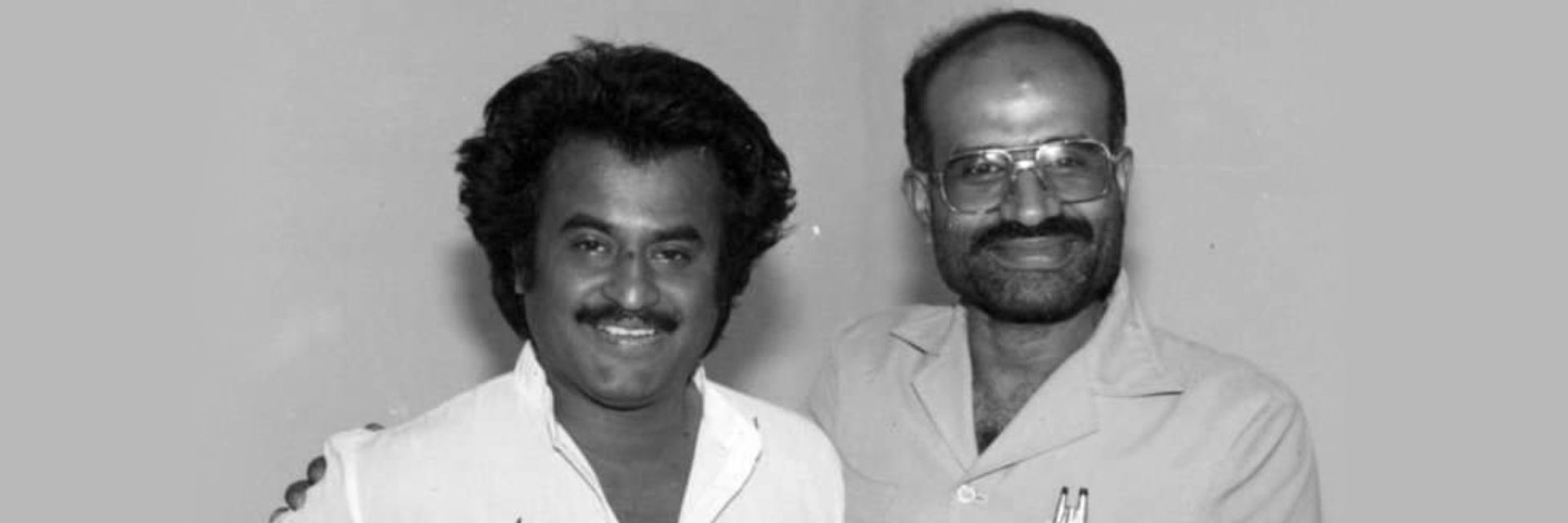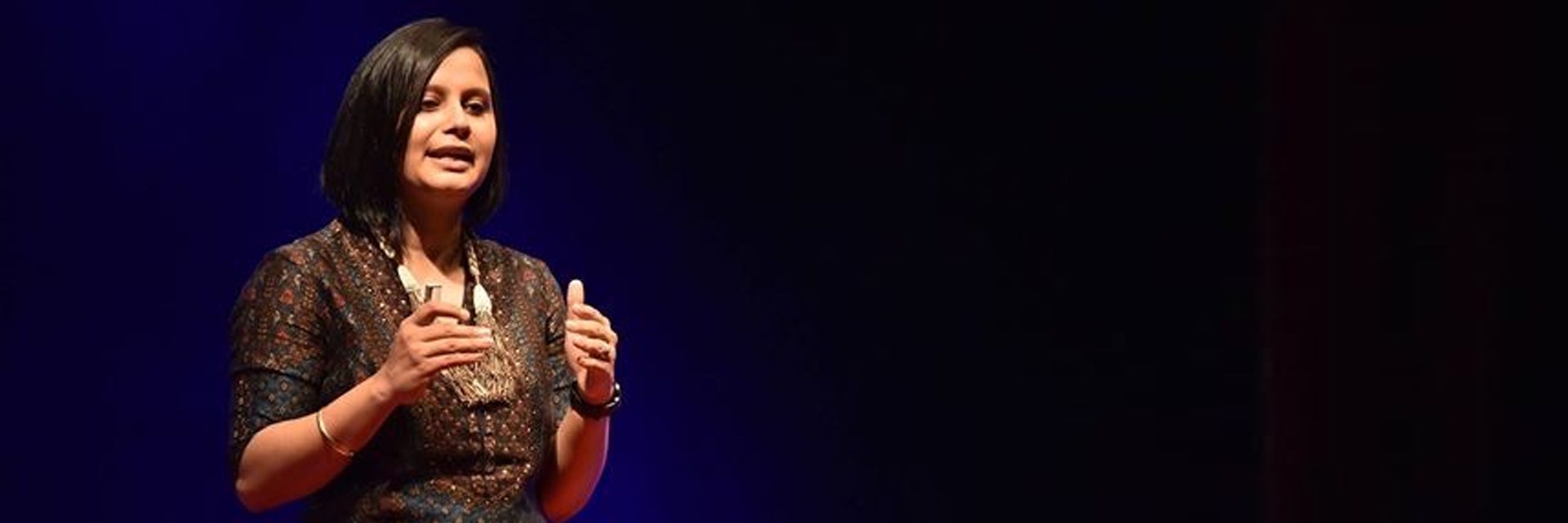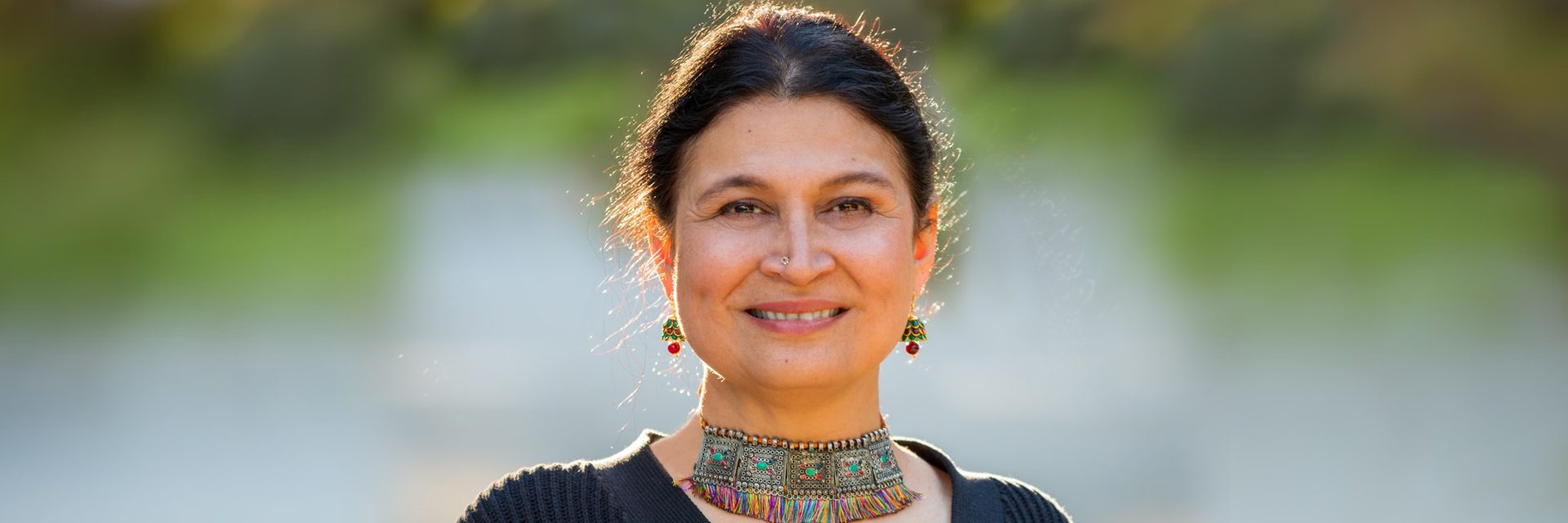(January 18, 2022) When his father gifted him a still camera at the age of 15, Rajah knew deep down that his passion for photography will soon become a full-fledged career. “I don’t even remember what camera it was, but I ended up shooting a lot of photographs with it,” says Dr Rajah Balakrishna. A few years later, when he watched a Shivaji Ganesan film, he realised that he wanted to be an actor too.
The man behind eight UNESCO films and many regional films has left a mark in Abu Dhabi where he worked as a film maker for over two decades. Then, his roots called out to him, and he came back to Bengaluru. He is now set to direct, act, edit and cinematograph his first multi-lingual feature film about Covid 19, honouring doctors and frontline workers September 13.
An alumnus of St John’s High School (Bengaluru), Rajah completed BCom at Bangalore University, MA in mass communication and journalism at Bombay University in 1972, and a PhD in cinema from the UK. His thesis – comparing audience reaction and realisation in cinema across 15 countries – was to endow him with the tools to create a cine legacy.
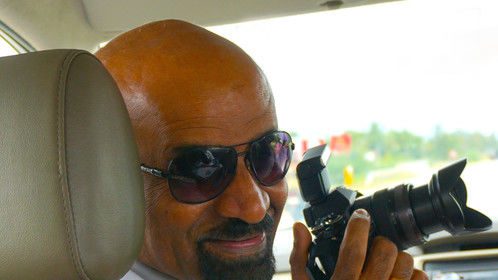
His visual stories gave him multiple accolades – from UNESCO – recognition for documentaries on culture and heritage of the Gulf, the Karnataka State Udyog Award for creating public awareness films, the award for best traffic awareness film from the police department of Saudi Arabia. A recognition from the National Orthopaedic Council of India and Lions International for an innovative video about the human eye came in too.
“My documentaries usually capture real, existing culture, while my films are fantasy, though inspired by life. Both are different worlds, and I enjoy both,” says Dr Rajah Balakrishna in an exclusive with Global Indian.
Balakrishna’s grasp and intuitive eye has given him a unique perspective over the decades. He has done five films in Kannada, one in Malayalam, one in Tamil, one in Arabic (where he acted too). But it’s his documentaries for UNESCO – eight – where he shone with cinematography, direction and editing. Other documentaries, serials, 40 plus corporate ads – The list is long and impressive.
Middle East calling
After stints in Chennai and Bengaluru for a Karnataka trade publication, Rajah moved to Abu Dhabi in 1982. The Gulf expatriate was on song as he turned his passion into a career of cine magic. He joined the audio-visual department for Al Jazira Group, scripting, editing and directing documentary films. Recognising his creative potential, the government-run Abu Dhabi Cultural Foundation invited him as the TV and film division producer in 1996. It was to be his home for the next two decades.
At what was to become the Abu Dhabi department of culture and tourism, Rajah set up a state-of-the-art film production unit and single-handedly shot and edited a dozen films highlighting the heritage of the Gulf, many made for UNESCO. “It is during these years that I learnt about a variety of new technologies. Today, my biggest learning from the Gulf has been the use of digital technologies for high-quality film-making,” he adds.
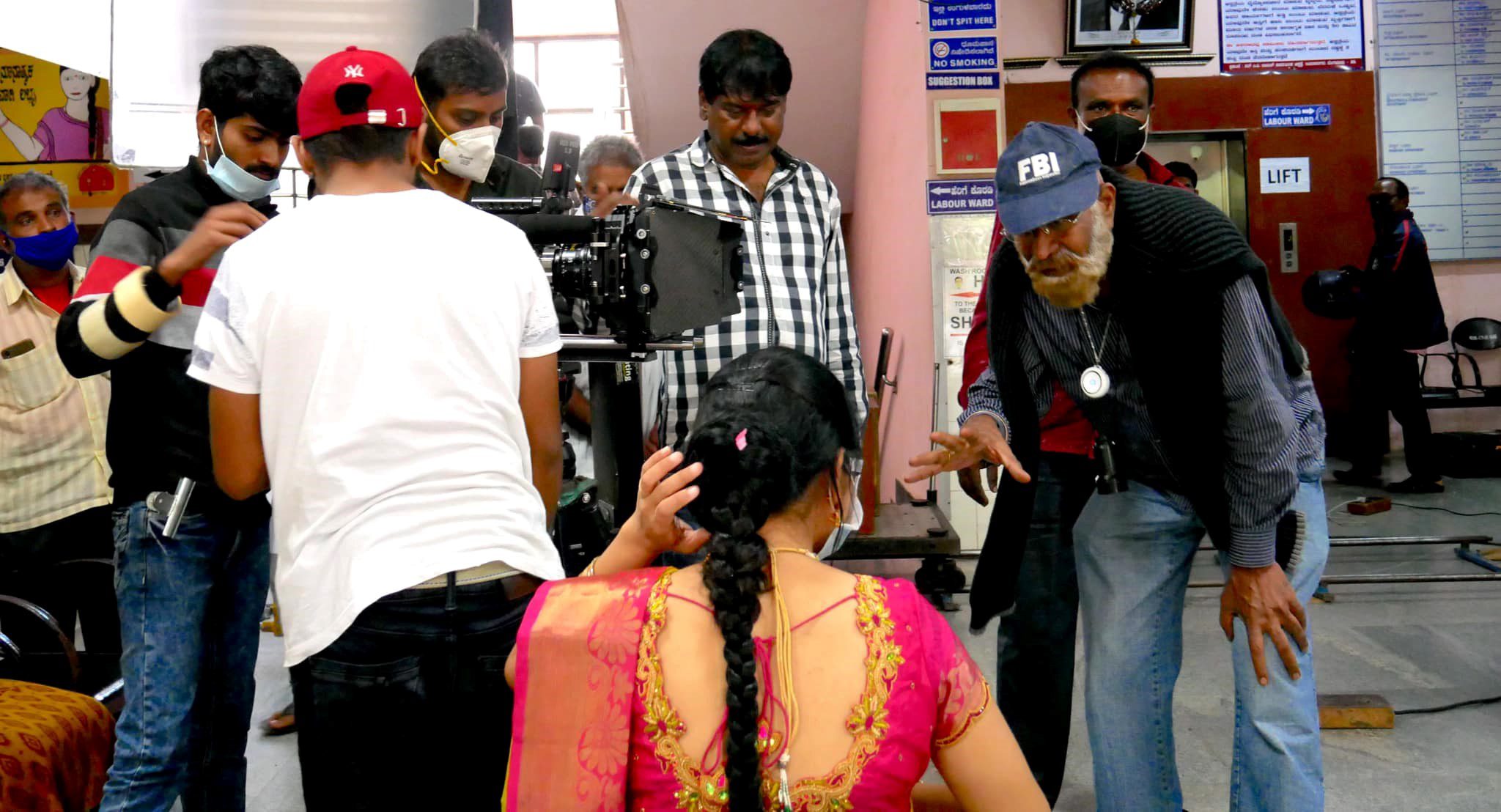
He is happy to be back to his hometown, and lives with his wife, and has two daughters. Incidentally, Rajah’s brother – Rajah Vijay Kumar – a scientist, recently created a “scalene hypercharge Corona canon (SHYCO-CAN),” a device which pumps out large electrons in the air to potentially kill Covid virus in the air. The device is currently gaining global acceptance.
The ghar wapsi
After more than two decades, this film encyclopaedia, who had earned a name in the Middle East, returned to India (2018) to set up his own studio at his ancestral house in Bengaluru (Rata Communications). He has reinvented the craft, and today helps educate young enthusiasts in emerging techniques of phone photography and film-making. “My film-making endeavours give me the opportunity to interact with a lot of youngsters across various spheres and these interactions help me understand the changing world and stay relevant,” adds the avid cinema buff.
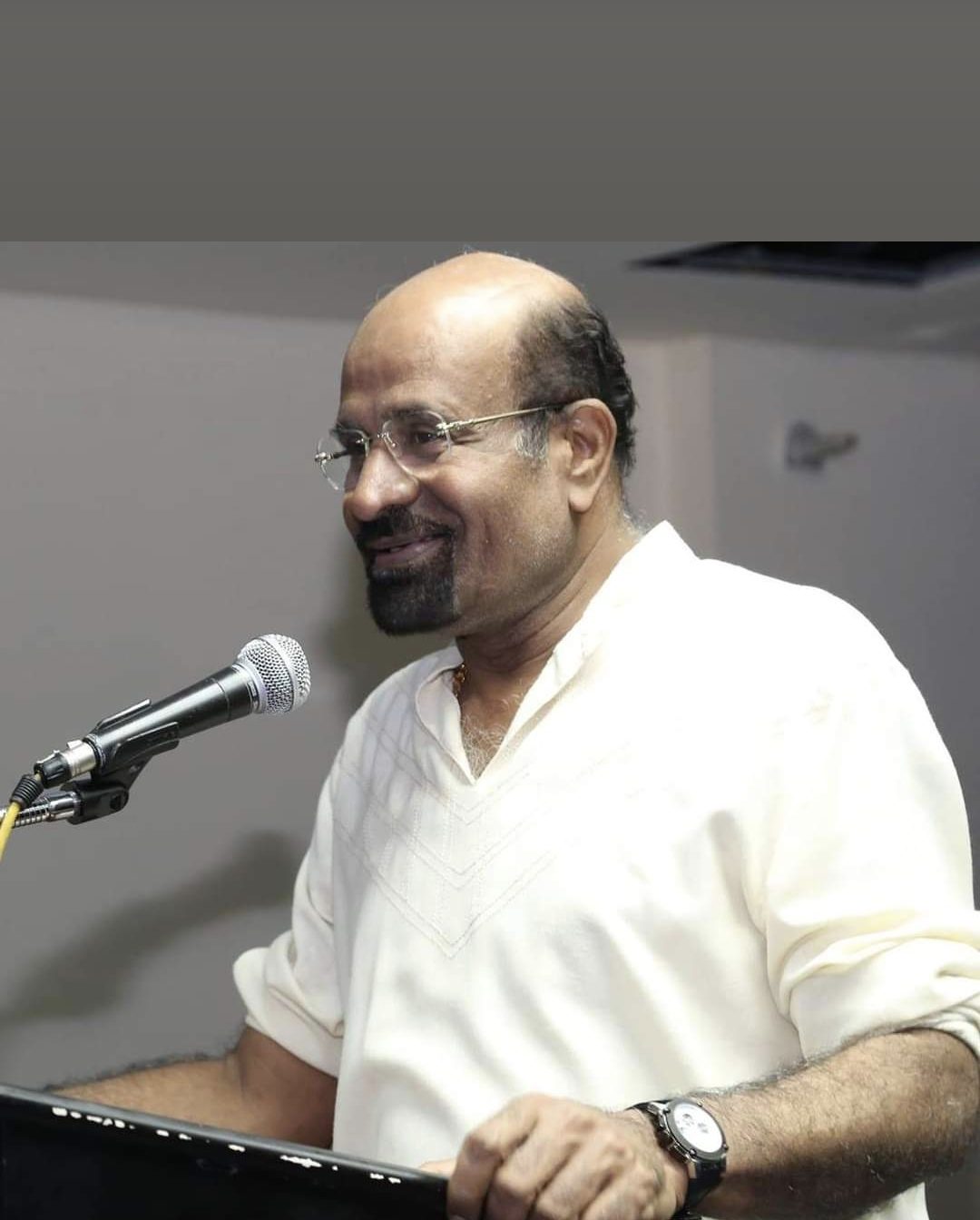
It was only a matter of time before Sandalwood turned to Rajah to edit movies using state-of-the-art digital FX and techniques. Over the years, he has also acted in a few Arabic, Malayalam, Tamil and Kannada movies.
Direction, screenplay and editing
For this man for all seasons of cinema, the journey continued. In the second half of 2021, Rajah took on the task of writing the screenplay, editing and directing a full-length Kannada language feature film, September 13, with Malayalam, Tamil and Telugu versions, due to release in February 2022. Audiences will see Rajah acting in a pivotal role – in this story of a sister who becomes a nurse only to be welcomed rudely by the Covid-19 pandemic which spreads to her native village, and she tests positive. The film is a tribute to the relentless efforts of doctors and front-line staff with a tagline, “A film born out of the Covid experience.” Rajah says, “Nurses are true angels, who tirelessly work for the betterment of human health. This fact hugely attracted me towards taking up the September 13 project.”
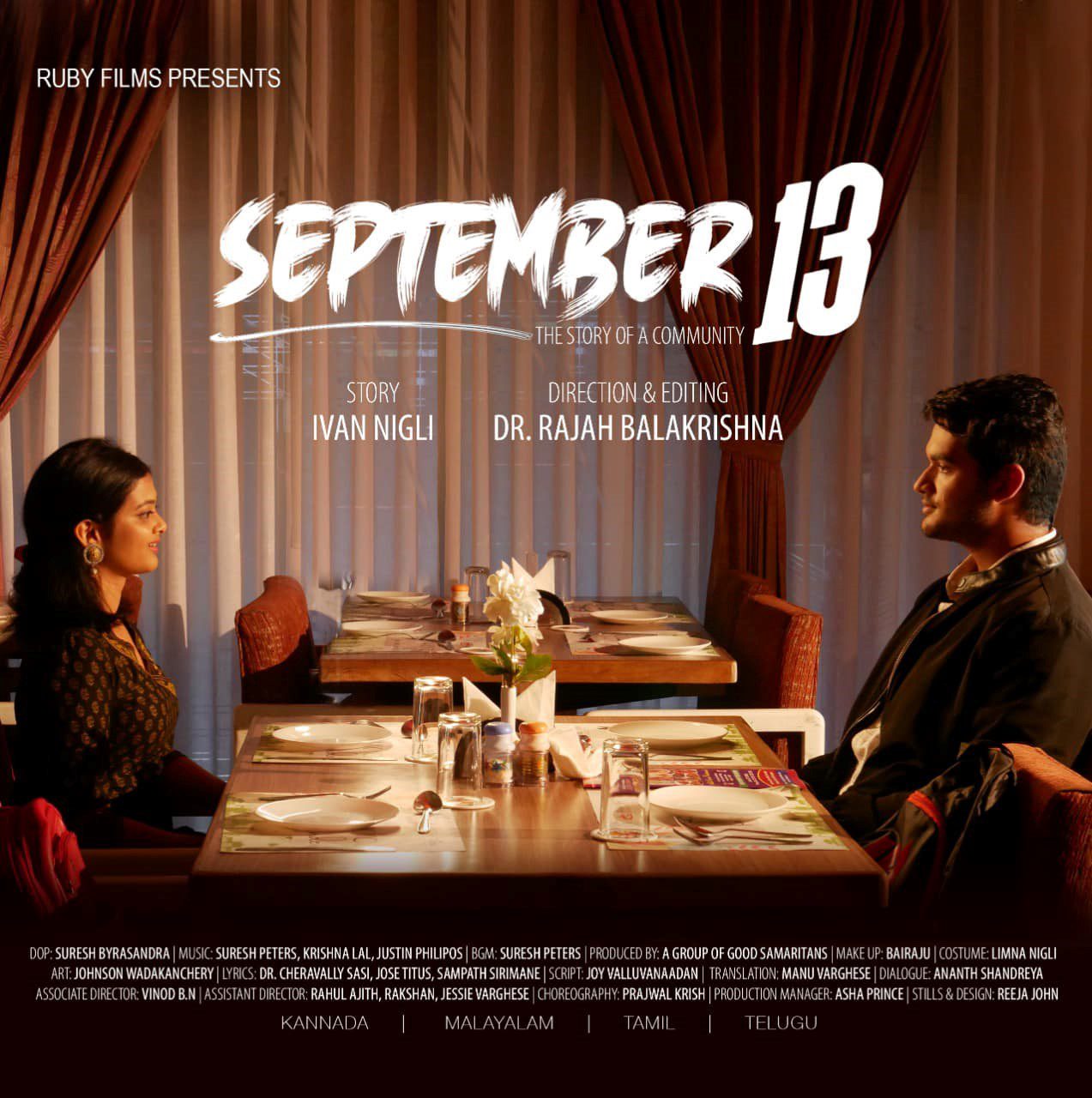
The irony
During the interview Rajah was quarantining after completing all his outdoor schedules. “Look at the irony. Four of my team members tested positive for Covid during our shooting. Thankfully, they are doing alright and all of us are looking forward to the film’s release soon,” says the man who juggles many roles.
The film was shot in rural Karnataka locations. “Rural folks are friendly and helpful. I really enjoyed shooting with them,” he adds. This may be the first of many cinematic ventures for Dr Rajah Balakrishna. His priorities remain steadfast – spreading the art and culture of cinema, and he is already crafting an online course in digital film making for budding film professionals.
Encouraging youngsters
Rajah personifies art. While his career is centered around editing, film making and acting, his hobbies include painting, with a hint of cooking, where he often tries to find artistic elements.
Rajah had conducted dozens of short and long workshops on digital film-making to educate and enthuse a generation of young people in the UAE. Having trained young and aspiring film-makers, he advices, “Every human being is creative. Just try thinking out-of-the-box, followed by hard work and dedication, this will bring satisfaction and success.”

